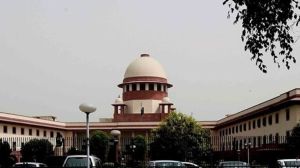Sinha turns down sugar import duty hike plan
NEW DELHI, Nov 20: Finance minister Yashwant Sinha has shot down the food ministry's proposal to hike sugar import duty, saying any such mov...

NEW DELHI, Nov 20: Finance minister Yashwant Sinha has shot down the food ministry’s proposal to hike sugar import duty, saying any such move would be inflationary and not advisable.
"I have had the matter examined… It has not been found feasible to agree to the proposal for increasing customs duty on sugar as suggested in your letter," Sinha said in a reply to food minister Surjit Singh Barnala’s proposal to hike import duty on sugar to 40 per cent.
Barnala, in his letter on October 13, recommended that the duty be raised from the current level of five per cent basic customs duty and Rs 850 per tonne countervailing duty to curb large scale imports of the commodity.
Defending his decision to not raise import duty on sugar, Sinha said opening stocks of 45 lakh tonnes for the current sugar year (October 1998-September 1999) was the lowest in last four years and levy stocks were negative.
"This may cause industry to indulge in speculative price escalation. Thus, it appears that we must keep the importoption open at least till the stock position improves," he said.
Forwarding the food ministry proposal, Barnala had said a hike in sugar import duty was essential to provide a level playing field to the Indian sugar industry and to prevent financial losses to Indian farmers. "Without such action, it would not be possible for the domestic sugar industry to make timely payment of cane prices to the farmers," he said.
Sinha said total sugar imports of 7.36 lakh tonnes during October-September 1997-98 constituted only 5.7 per cent of the domestic production and hardly five per cent of the total domestic consumption.
It was too insignificant to make any impact on domestic prices, he said. Domestic sugar price had remained steady for nearly a year, the finance minister said, adding "had there been excessive imports at a dumped price as is made out by the manufacturing industry, this would have been reflected in a fall in domestic prices".
The imports had prevented a speculative rise in sugar prices, thattoo at a time when prices of articles like edible oil, pulses and vegetables were rising. He said as compared to the annual domestic consumption of 142 lakh tonnes, sugar production during 1996-97 and 1997-98 was 129 lakh tonnes and 127.5 lakh tonnes respectively.
With this background, it was essential to have the import option open for better stock positions, he said. Barnala said in his letter that during October-march 1997-98, over eight lakh tonnes of sugar had been imported in the country, resulting in softening of the domestic wholesale prices.
"It is feared that unless there is an immediate intervention from government, the domestic sugar industry will be forced to sell Indian sugar at uneconomic levels which is likely to result in accumulation of cane price arrears to the farmers," he said.
Further, the financial condition of the sugar industry in the country was not particularly good and due to this reason, fresh investment was not coming into the sector. "It would, therefore, not be in theinterest of the economy if the domestic sugar prices are unduly depressed as this would adversely affect future capacity creation in the sugar sector," he said.





- 01
- 02
- 03
- 04
- 05


























